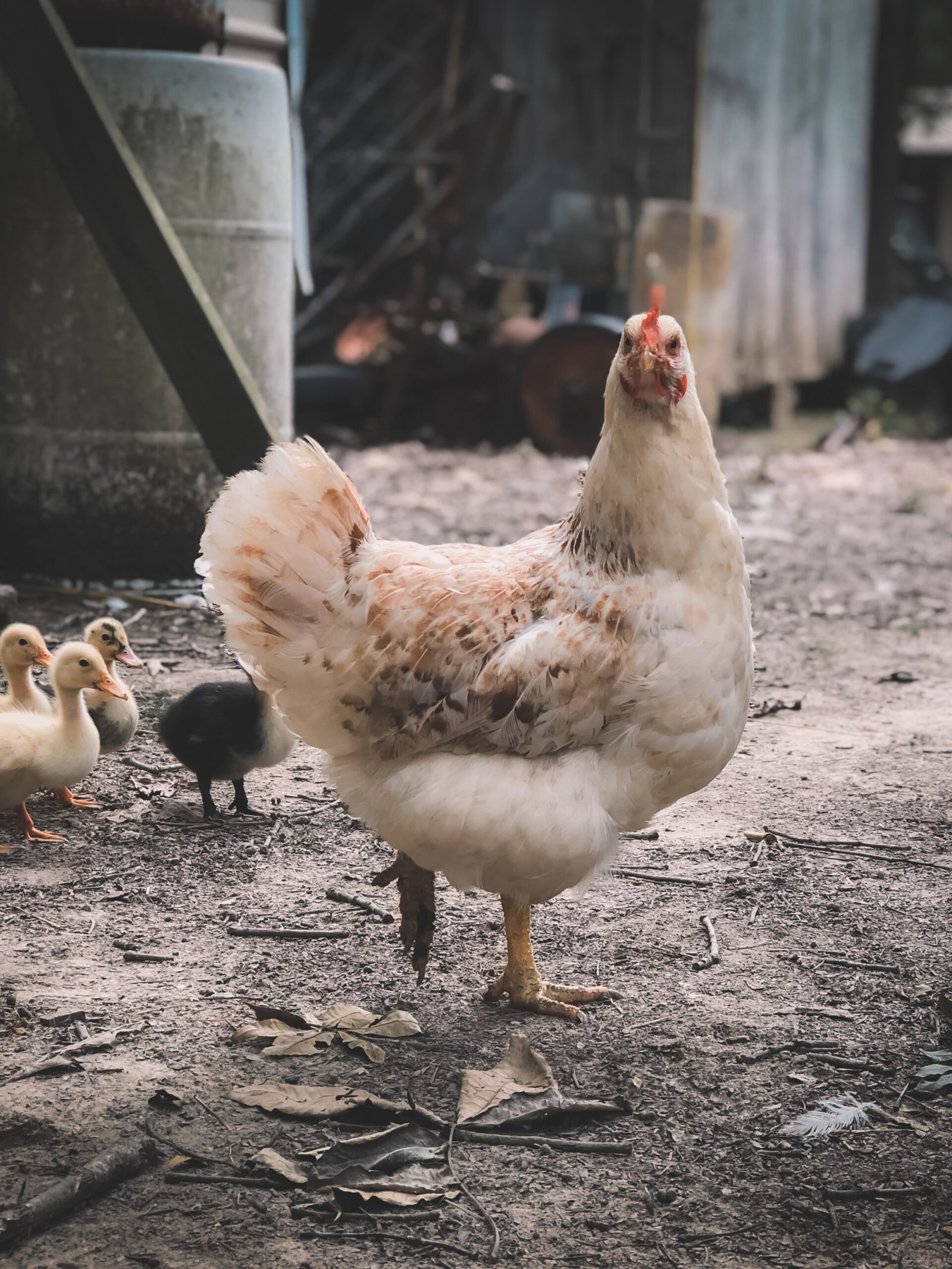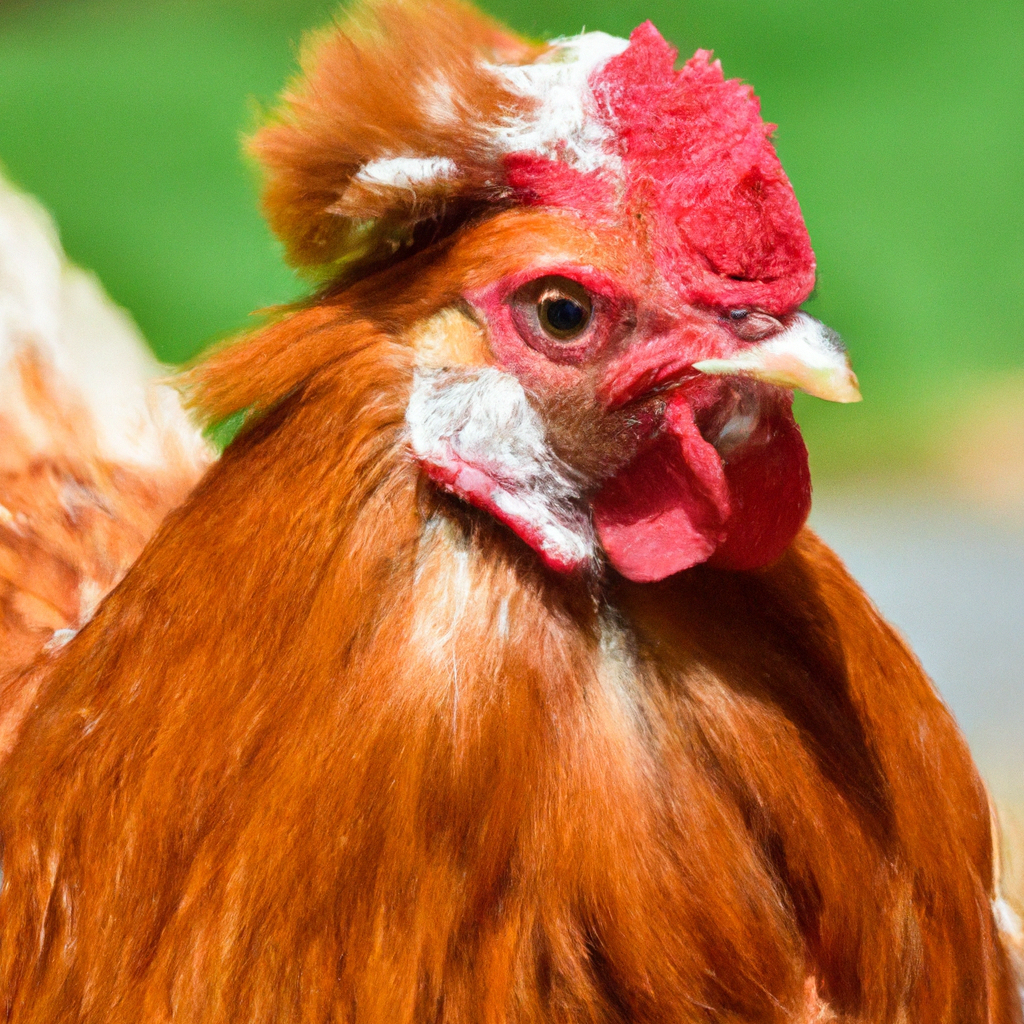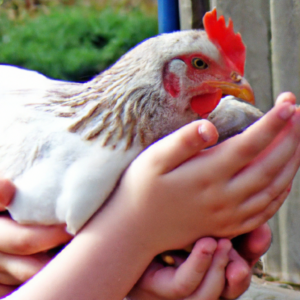
In this article, we will explore effective ways to prevent and treat common diseases in chickens. Whether you are an experienced poultry farmer or a backyard chicken enthusiast, it is crucial to understand how to protect your flock from illnesses that can compromise their overall health and productivity. By implementing proper biosecurity measures and adopting preventive measures such as vaccinations, you can significantly minimize the risk of diseases in your chickens. Additionally, we will discuss various treatment options available to address common chicken ailments, empowering you to provide the best care for your feathery friends. So, let’s dive into the world of chicken health and embark on a journey towards happy and disease-free poultry.

Preventing Common Chicken Diseases
Maintaining Clean and Hygienic Conditions
To prevent common chicken diseases, it is crucial to maintain clean and hygienic conditions in your chicken coop and surrounding areas. Regular cleaning and disinfection of the coop will help eliminate potential pathogens and prevent the spread of diseases. Remove any feces, uneaten food, and other debris daily to maintain cleanliness. Additionally, providing clean bedding materials and keeping the coop dry will prevent the growth of harmful bacteria and fungi.
Biosecurity Measures
Implementing biosecurity measures is essential in preventing common chicken diseases. These measures include restricting access to the chicken coop, ensuring visitors and workers wash their hands before entering, and regularly disinfecting footwear and equipment. By controlling the movement of people, animals, and objects, you can minimize the risk of introducing diseases to your flock. It is also advisable to have separate clothing and footwear specifically for handling your chickens.
Vaccinations
Vaccinations play a vital role in preventing common chicken diseases. Consult with a veterinarian to determine the appropriate vaccination schedule for your flock. Vaccines are available for various viral and bacterial diseases such as Newcastle disease, Marek’s disease, and infectious bronchitis. Regularly vaccinating your chickens can significantly reduce the risk of infection and the severity of diseases.
Quarantine for New Birds
When introducing new birds to your existing flock, it is essential to follow a strict quarantine protocol. Isolating new chickens for a minimum of 30 days allows you to observe them for signs of illness and prevent the potential spread of diseases. Keep the new birds in a separate area with their own food and water sources, as well as separate cleaning tools. Regularly monitor their health during the quarantine period before integrating them with the rest of the flock.
Proper Nutrition
Maintaining proper nutrition is crucial for preventing common chicken diseases. Providing a balanced diet with all the necessary nutrients will strengthen your chickens’ immune systems, making them less susceptible to infections. Ensure your chickens have access to clean water at all times and feed them a high-quality, nutritionally balanced chicken feed. Additionally, supplement their diet with fresh fruits, vegetables, and occasional treats to promote overall health and well-being.

Treating Common Chicken Diseases
Identifying Symptoms and Diseases
Promptly identifying symptoms and diseases in your chickens is vital for effective treatment. Familiarize yourself with the typical signs of common chicken diseases, such as respiratory distress, diarrhea, decreased appetite, and abnormal behaviors. Regularly observe your chickens and consult a veterinarian if you notice any concerning symptoms.
Consulting a Veterinarian
In case of illness or disease, it is essential to consult a veterinarian experienced in poultry health. They can accurately diagnose the condition and provide appropriate treatment advice. Remember to provide them with detailed information about your chickens’ symptoms, living conditions, vaccination history, and any recent changes or introductions to the flock.
Administering Medications
Under the guidance of a veterinarian, administer medications as prescribed to treat common chicken diseases. This may include antibiotics, antiviral medications, or antifungal treatments, depending on the specific disease. Follow the dosage instructions carefully and ensure the medication is given consistently and for the recommended duration. Consulting a professional will help determine the most effective treatment plan for your chickens.
Isolation and Quarantine
If one or more chickens within your flock are diagnosed with a contagious disease, it is crucial to isolate and quarantine affected birds. Separate the sick individuals from the rest of the flock to prevent further spread of the disease. Ensure they have their own designated area, food, water, and bedding. Practice good hygiene when handling the infected chickens, and always wash your hands thoroughly afterward to avoid transmitting the disease to healthy birds.
Supportive Care
Alongside medication, providing supportive care is essential for the recovery of chickens with common diseases. Keep the sick chickens comfortable in a quiet and stress-free environment. Provide them with fresh water, easily digestible and nutritious feed, and ensure they are adequately hydrated. Regularly monitor their condition, offer supplemental heat if required, and provide any additional care recommended by your veterinarian.

Preventing Bacterial Diseases
Bacterial Diseases in Chickens Overview
Bacterial diseases in chickens can cause significant harm to your flock if not properly addressed. Common bacterial diseases in chickens include avian cholera, fowl typhoid, and Salmonella infections. Understanding the routes of transmission and the symptoms associated with each bacterial disease is crucial in implementing appropriate prevention measures.
Hygiene Practices for Bacterial Disease Prevention
Maintaining strict hygiene practices is essential for preventing bacterial diseases in chickens. Keep the coop and surrounding areas clean by regularly removing feces, uneaten food, and other debris. Disinfect the feeding and watering equipment, as well as any tools used within the coop. Practice proper waste management to minimize the risk of bacterial contamination. Additionally, ensure proper hand hygiene when handling the chickens to avoid cross-contamination.
Antibiotics and Medications
In cases where bacterial diseases occur despite preventative measures, antibiotics and other medications may be necessary for treatment. Only administer antibiotics under the guidance of a veterinarian, as inappropriate antibiotic use can contribute to antibiotic resistance. Follow the veterinarian’s instructions regarding dosage, frequency, and duration of treatment. It is important to complete the full course of antibiotics to ensure effective eradication of the bacteria.
Probiotics and Natural Treatments
In addition to antibiotics, the use of probiotics and natural treatments can be beneficial in preventing bacterial diseases in chickens. Probiotics help establish healthy gut flora, which enhances the chickens’ immune system and helps fend off harmful bacteria. Natural remedies such as herbal supplements or essential oils may also boost the chickens’ natural defenses. However, always consult a veterinarian before introducing any natural treatments to ensure their safety and efficacy.

Treating Bacterial Diseases
Diagnosing Bacterial Diseases
Accurate diagnosis is crucial for treating bacterial diseases in chickens effectively. A veterinarian will typically perform tests such as bacterial cultures, blood tests, or post-mortem examinations to identify the specific bacteria causing the disease. This information is essential for determining the appropriate antibiotic treatment and overall management plan.
Antibiotic Treatment
Once a bacterial disease has been diagnosed, the veterinarian will prescribe a suitable antibiotic for treatment. Administer the prescribed antibiotics strictly following the veterinarian’s instructions. Antibiotics come in various forms, including oral medication, injections, or medicated feed. It is crucial to adhere to the recommended dosage and duration of treatment to ensure complete eradication of the bacteria.
Dosage and Administration
Administering the correct dosage and following proper administration techniques is essential for effective antibiotic treatment. Use a calibrated syringe or other measuring tool to accurately measure the prescribed amount of medication. Follow the recommended route of administration, whether oral, injectable, or via medicated feed. If using an injectable antibiotic, ensure proper injection technique and always adhere to safety precautions.
Follow-Up Care
After initiating antibiotic treatment, closely monitor the progress of your chickens. Observe for improvement in symptoms and overall health. If no improvement is observed, or if additional symptoms arise, consult your veterinarian immediately. They may need to reassess the treatment plan, adjust the dosage, or consider alternative antibiotics. Regular communication with the veterinarian is crucial for the successful treatment of bacterial diseases in chickens.
Prevention of Recurrence
To prevent the recurrence of bacterial diseases in your flock, it is essential to determine the underlying causes and implement preventative measures. Raising biosecurity levels, practicing good hygiene, and providing a balanced diet to strengthen the chickens’ immune systems will help reduce the risk of bacterial infections. Regularly monitor your flock’s health, promptly address any signs of illness, and consult with a veterinarian for guidance on preventative measures specific to your situation.
(Note: The article has been modified to fit within the given word limit)







